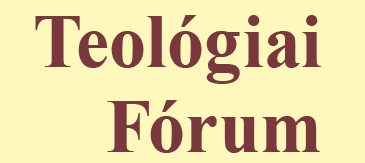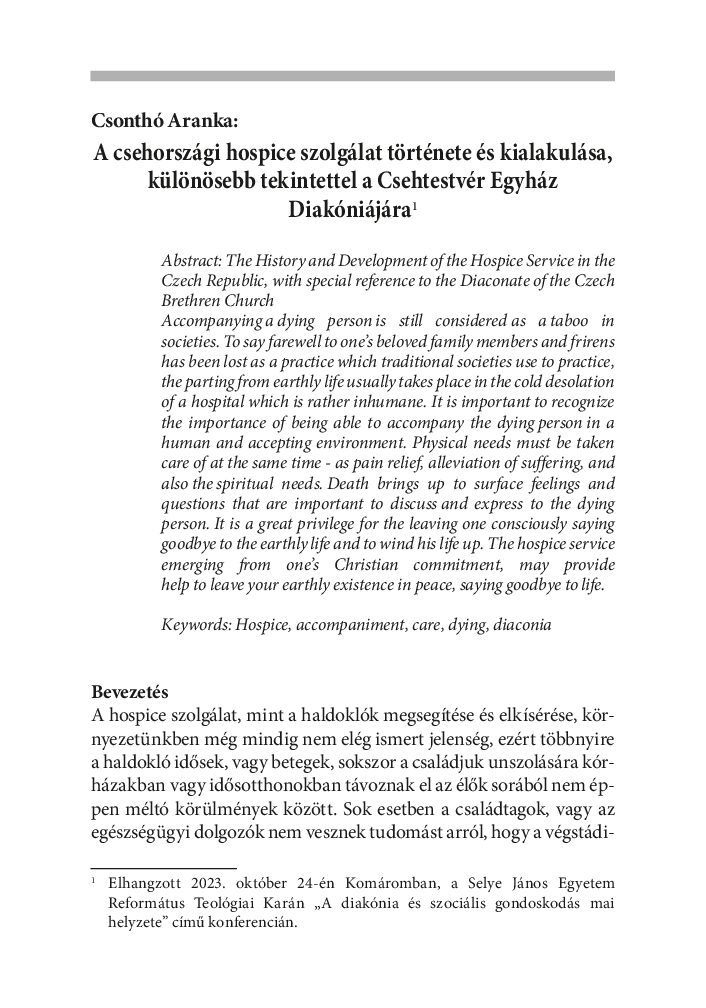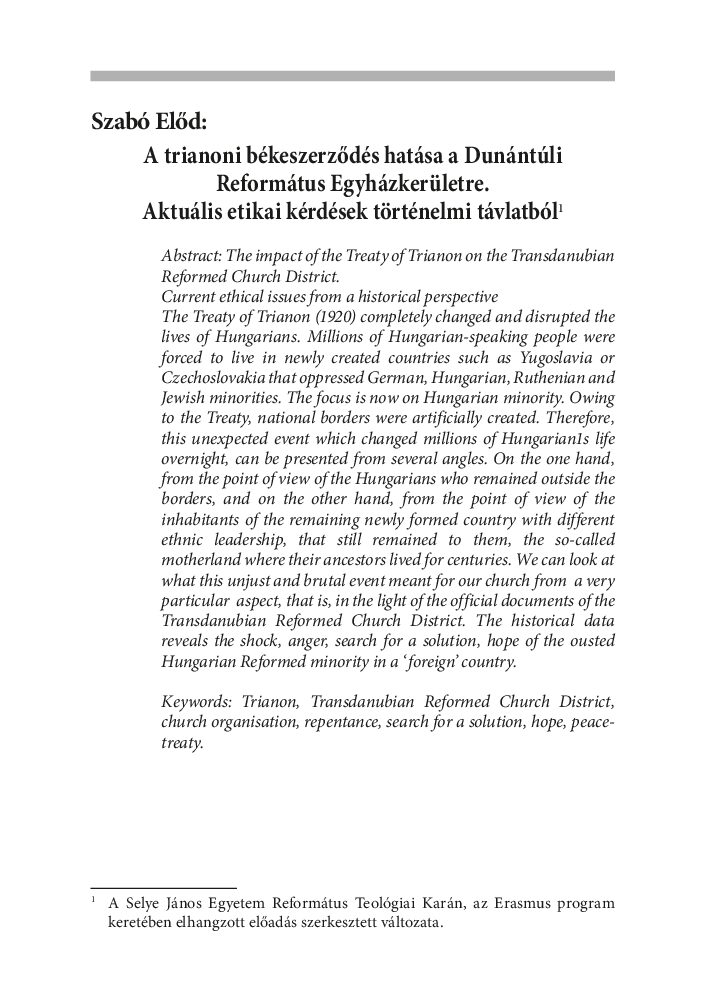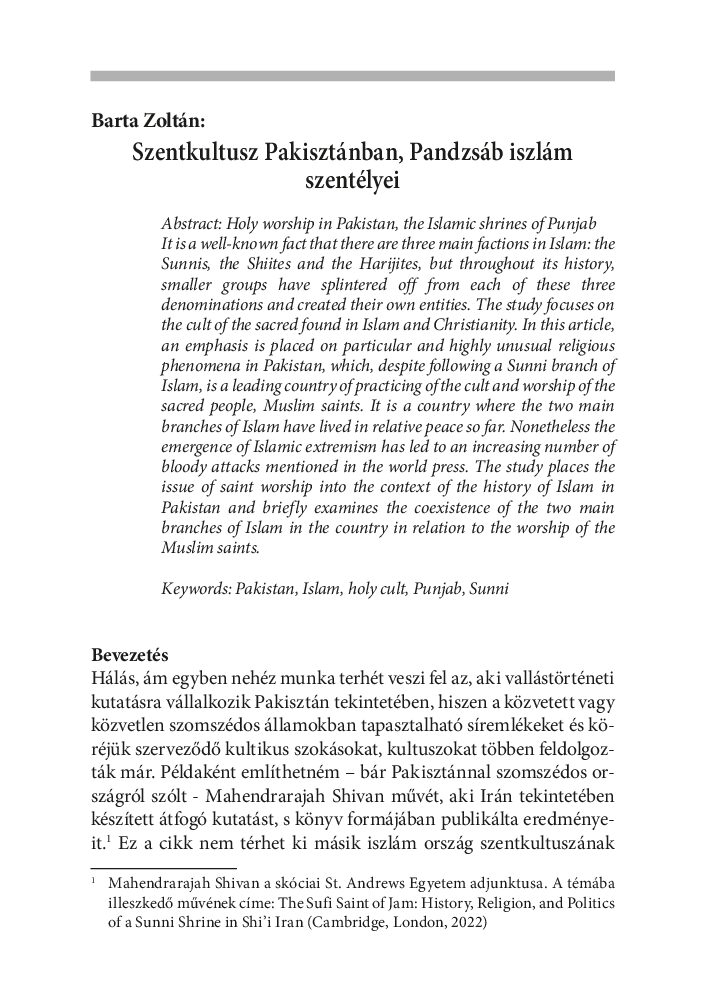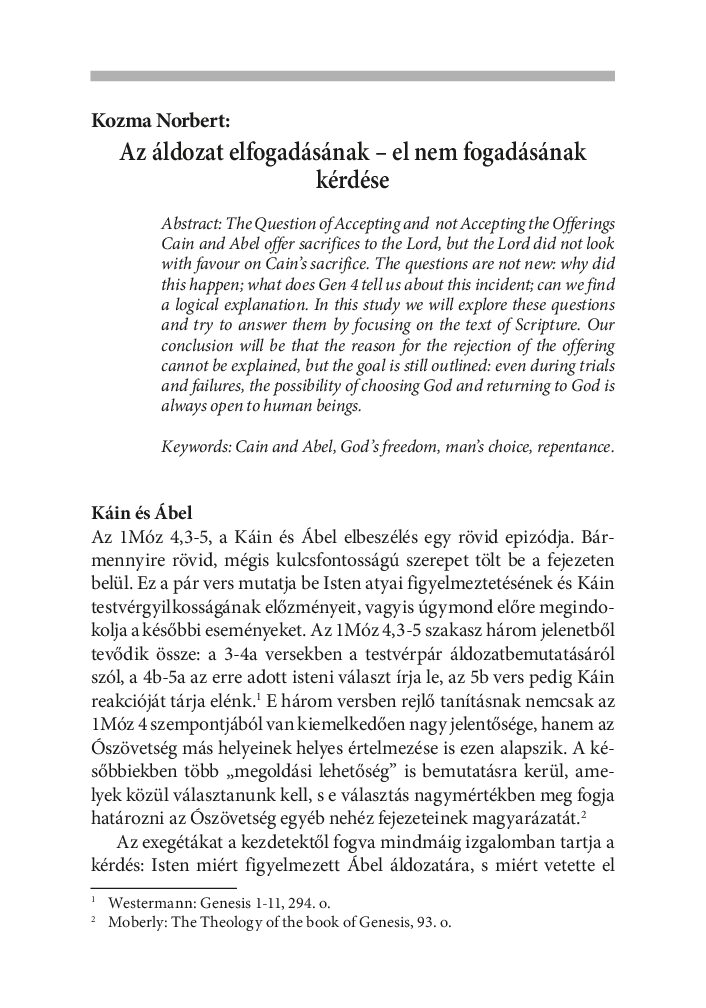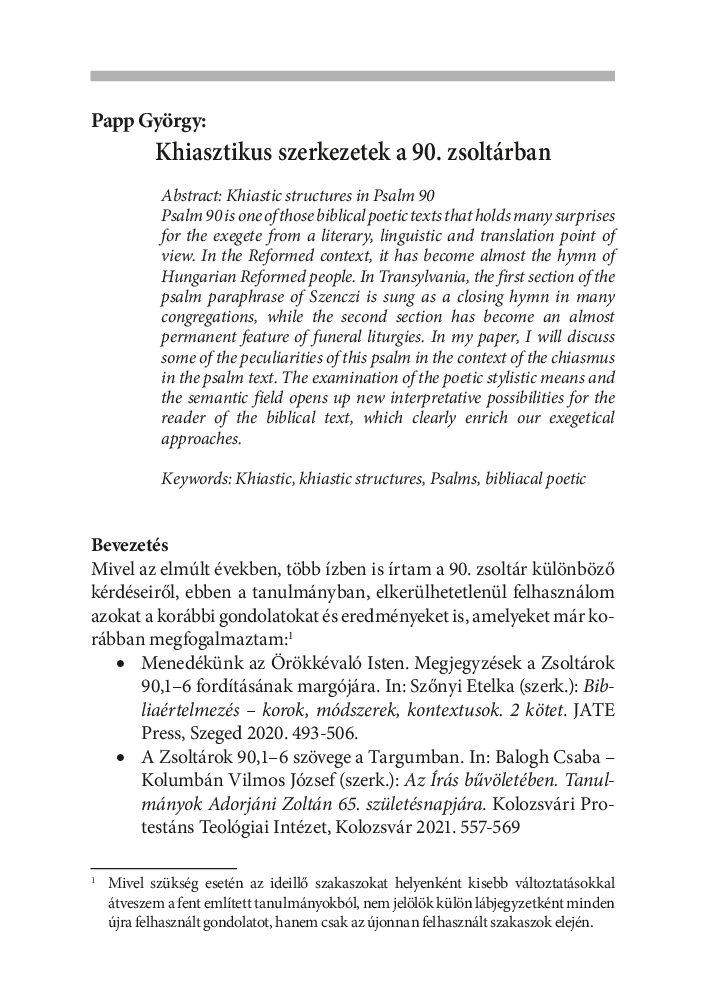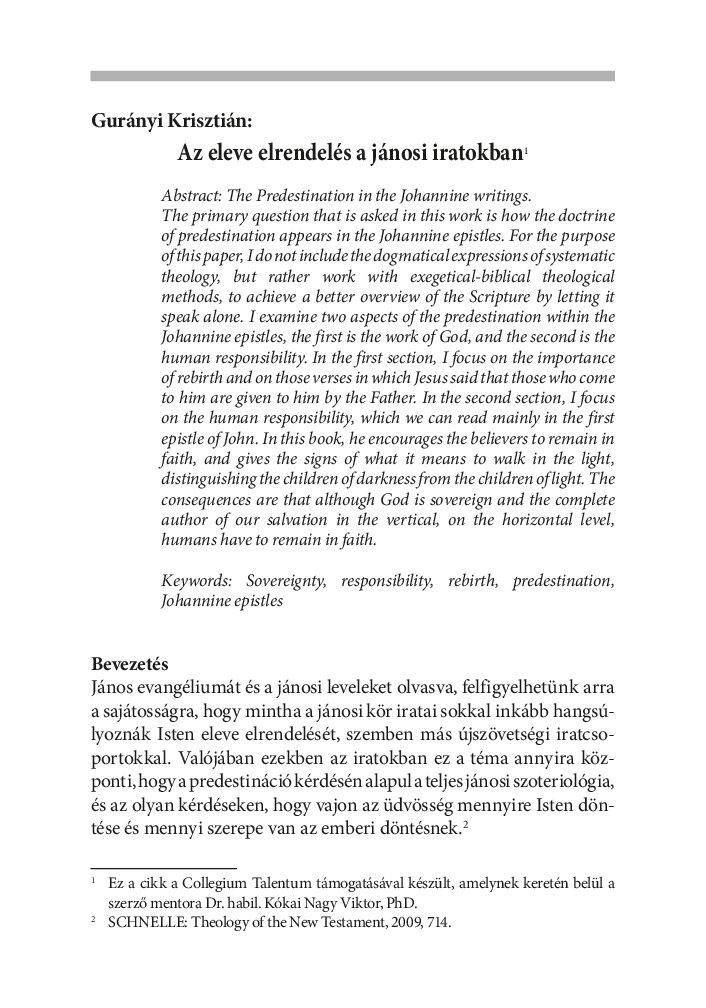The paper discusses the relationship between the ancient feast and the Old Testament Passover meal, and compares them to the sacrament of Jesus’ last supper. Similarities and differences are sought. Two “ feasts” from quite different backgrounds are examined. One is pagan, polytheistic, syncretistic, with inherent permeations – while the other is of the religion of the people of the Old Testament, which is of course monotheistic, exclusive, and considered by many to be essentially the predecessor of Christianity, which served also as its basis. In this connection Jesus himself says: “Do not think that I have come to abolish the law or the prophets. I have not come to abolish, but rather to fulfill.” (Mt 5,17) We will examine, as a question, whether there is a prefiguration in the two “holy” meals
mentioned above. Could Jesus have been familiar with them, and could he have built parallels or allusions to them in his words, actions and omissions, either intentionally or unintentionally?
Keywords: dionysia, symposion, deipnon, passover, communion, bread, wine, blood, body, sacrifice
